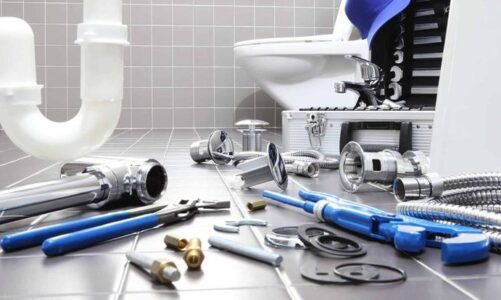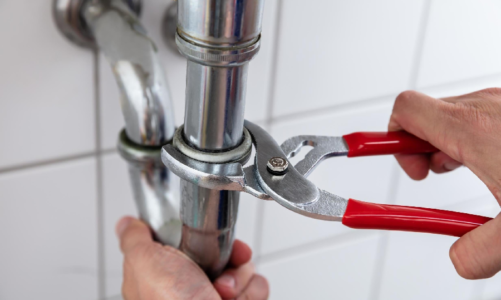For homeowners in Kennesaw, understanding the basics of plumbing systems is crucial in maintaining a well-functioning household. From water supply to drainage, knowing how your system works helps prevent common issues like leaks and clogs. Learn more about plumbing maintenance and when it’s time to call a plumber in Kennesaw for assistance.
The Basic Components of a Plumbing System
Plumbing systems consist of two main parts: the water supply system and the drainage system. The water supply system brings fresh water into your home while the drainage system removes wastewater.
Water Supply System
The water supply system involves pipes that bring water to your sinks, toilets, showers, and appliances. Water enters through a pressurized system, which ensures the water reaches all parts of the house. Understanding the components, such as valves, pressure regulators, and pipes, is essential for maintaining this system.
Drainage System
The drainage system is equally important. It involves a series of pipes that remove wastewater from your home. This system relies on gravity to move wastewater out and includes vents to release sewer gases safely. For homeowners new to plumbing, learning about the Drain, Waste, and Vent (DWV) system is essential for understanding how water exits your home and what problems can arise.
Common Plumbing Problems
Even with basic knowledge, plumbing systems can be challenging, especially when issues arise. Here are a few common plumbing problems and what causes them:
Leaking Pipes
Leaking pipes are one of the most common issues in residential plumbing. They can lead to water damage and mold growth if not addressed quickly. Leaks are often caused by corrosion, high water pressure, or poor pipe connections. It’s vital to have regular inspections to detect leaks early and fix them before they escalate.
Clogged Drains
Clogs are another common problem. Hair, soap, food particles, and grease can easily build up in drains over time. Regular maintenance, such as using drain strainers and avoiding pouring grease down the drain, can prevent clogs. But for stubborn blockages, it’s always best to hire a professional.
When it comes to hiring the right professional, homeowners should look for specific qualities. If you’re unsure what to look for in a plumber, here are tips on hiring a professional plumber to help you make an informed decision.
How to Maintain Your Plumbing System
Regular maintenance of your plumbing system is key to avoiding unexpected issues. Here are a few steps homeowners can take:
Regular Inspections
Have a professional plumber inspect your system regularly to catch potential problems early. Identifying issues like pipe corrosion or slow drains before they become major repairs can save you money.
Monitor Water Pressure
High water pressure can cause strain on your pipes and fixtures, leading to leaks. Installing a pressure regulator can ensure that your water pressure stays at a safe level, protecting your plumbing system from damage.
Clean Your Drains
Regularly cleaning your drains can prevent clogs. However, avoid using chemical drain cleaners, which can damage your pipes over time. Instead, consider using natural solutions or calling in a professional plumber if the issue persists.
Choosing the Right Plumber
When plumbing problems become too complex, it’s time to call in a professional. Not every plumber is created equal, so it’s important to know what qualities to look for. There are several factors to consider, from reliability to proper certification.
Conclusion
Understanding the basics of plumbing systems can be incredibly helpful for homeowners. It allows you to take better care of your home and make informed decisions when issues arise. Knowing when to call a plumber can save you from further damage and costly repairs, whether you’re dealing with leaking pipes or clogged drains. Maintaining your system with regular inspections and proper care will keep your home’s plumbing running smoothly.
Frequently Asked Questions
1. How can I prevent clogged drains in my home?
Using drain strainers and avoiding pouring grease or food particles down the drain can help prevent clogs. Regular cleaning also helps maintain the flow of water.
2. What causes pipes to leak?
Leaks are commonly caused by corrosion, high water pressure, or poor connections between pipes and fittings. Regular inspections can help detect these issues early.
3. When should I call a professional plumber?
If you’re facing persistent problems like slow drains, recurring leaks, or other major issues that you can’t resolve on your own, it’s time to call a professional plumber.




